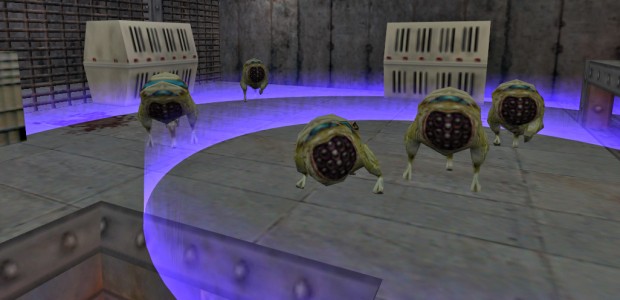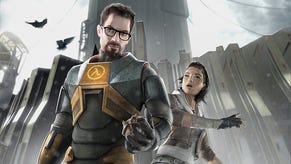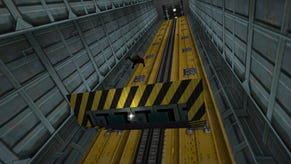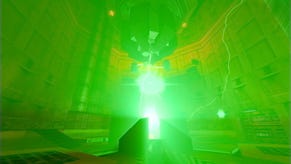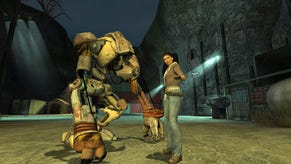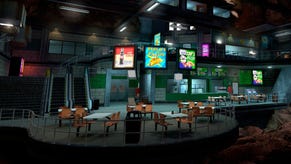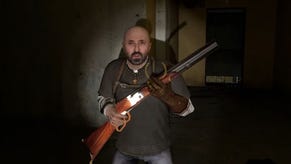Novel Approach: Laidlaw's Younger Self Talks Half-Life
Putting the game to writes
Marc Laidlaw posted a fascinating blog entry from a younger version of Laidlaw about the development of Half-Life from the narrative perspective. By "a younger version" I mean that it comes from his own hand but via a file timestamped the day after Half-Life was shipped and is thus far closer to the game's... ground zero? than the Laidlaw of now.
I came to the blog post as someone who appreciates Half-Life as a PC gaming milestone but who doesn't share that personal, emotional connection most of my colleagues have with its milestoneyness. I didn't have the right combination of platform, context, social group and so on to quite hit its sweet spot (Ocarina of Time was my own personal horizon-exploding game). Instead I played bits of it years later, like watching a classic film and missing the myriad touches that in-the-moment would have signposted "GAME-CHANGER" over and over again.
But Laidlaw's account is a really lovely read. One of those accounts that helps knit bits of the creative process together in a helpful way, but also which has those little jolts of "I hadn't thought of it that way". For example, there's an account of how, initially, he looked at the basic structure of the game and saw the sort of world you get in a shared anthology, with authors using it to create these related but distinct stories, sharing elements of architecture but each a separate entity:
"There is some obligatory overlap of characters and casual reference to events in other episodes, but overall each chapter is a distinct and separate performance by an individual. So it was with Half-Life. There was an experimental portal device, several silos, some train tunnels, a nuclear reactor, and endless miles of corridors and air ducts. They were great sets, but it was not at all clear what kind of continuing drama could ever unfold against them. Half-Life was still an anthology, when what Valve really wanted to create was something with the coherence and unity of a novel."
There's also just something I really enjoy about reading perspectives other than from someone who has always worked in gaming. I like seeing how other disciplines interpret games and how people from other sectors can come in and find their niche/make a new niche in games.
"We tried out and discarded quite a few grand schemes. Some of you may remember, as I do, early talk about how there would be no bottlenecks in the game; how you would be able to run from one end to the other and all the way back again. This would have been a very easy feature to implement, given the nature of our transitions, but I was very relieved when we jettisoned this notion. Total freedom for the player would have meant a total loss of dramatic suspense. All narrative forms of drama, but especially horror, rely on pacing and rhythm. In horror timing is crucial. You have to set up your traps just so, and wait until your victim is precisely in position. There’s nothing worse than springing them a moment too soon or too late. This would have been virtually impossible to control in a nonlinear game. would have been choosing to throw all suspense right out the window. We really wanted players to have an artfully structured experience, and time and trial have basically proven that the most satisfying narratives are linear."
If I keep posting bits I like I'll just end up reposting the whole thing so I'll just leave it at that and say it's a good read for a coffee break. I got through one mug of the stuff and two ginger nut biscuits while I was reading.

